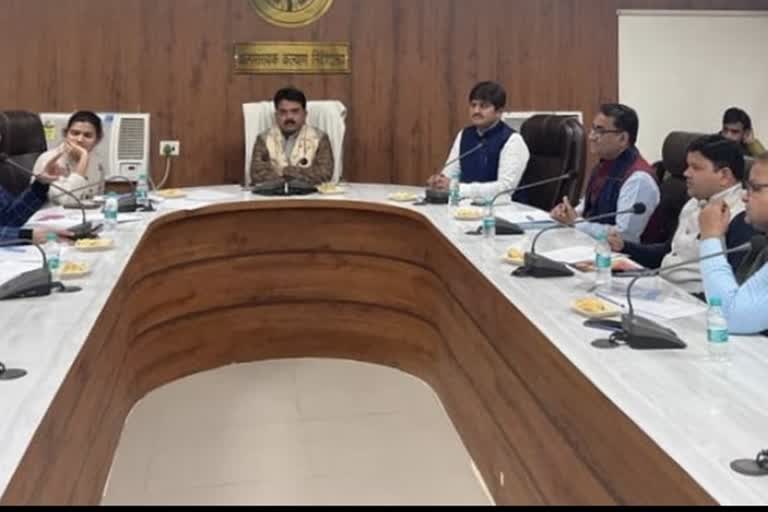Lucknow: In a significant development, the Uttar Pradesh government has rejected the demand of the National Child Rights Protection Commission (NCRPC) to investigate the “non-Muslim children studying in madrassas” in the state, sources said on Thursday. It is learnt that a special meeting of the UP Madrassa Board was called on Wednesday over the demand of the National Child Rights Protection Commission to probe the matter.
The meeting was presided over by Dr Iftikhar Ahmed Javed, Chairman of the Madrassa Board. While the board members discussed several issues confronting the Madrassas in UP, the stand over the National Child Rights Protection Commission demanding a probe into “non-Muslim children studying in madrassas” has grabbed eyeballs.
Also read:Madrassas don't need board affiliation, community support enough: Jamiat Ulema-e-Hind chief Arshad Madani
The commission's recommendation to investigate all madrassas giving admission to non-Muslim children and to admit non-Muslim students studying in madrassas was rejected outright, sources said. UP Madrassa Board Chairman Dr Iftikhar Ahmed Javed said that at the meeting on Wednesday several matters related to madrasas were discussed threadbare.
He said that at the meeting, the Basic Education Department. Besides, it was also decided to distribute the textbooks of the Basic Education Department among madrassa students studying in Classes I to VIII. It was also agreed upon to withdraw NCERT books from the madrassas, Javed said. In the Madrassa Board meeting, it was also decided to mitigate the issues confronting the Islamic seminaries.
Besides, the difficulties being faced by the Basic Education Department in the distribution of uniforms among the students studying in Classes I to VIII in aided madrassas were also discussed threadbare. Besides, in a bid to improve the quality of education in madrassas, it was decided to train teachers working in aided madrassas on the lines of the Basic Education Department, Javed said. Regarding the proposed amendment in the Madrassa Regulations Act 2016, it was decided to send the revised proposal to the government, incorporating the suggestions received from the stakeholders in the Rules.
